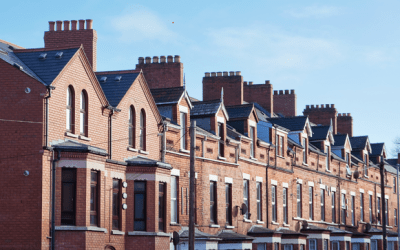How inflation affects interest rates? With UK inflation dropping to 2.6% in March – down from 2.8% in February – there’s renewed optimism in the housing market. The latest figures from the Office for National Statistics have beaten economists’ expectations, and that’s good news for anyone thinking of buying a home or remortgaging.
But why does this matter to you as a homebuyer? And how does it connect to your mortgage options? The answer lies in how inflation affects interest rates, and how closely they are linked.
Understanding How Inflation Affects Interest Rates
To put it simply, inflation is a measure of how much prices are rising. The Bank of England monitors inflation closely, as it aims to keep it around the 2% mark. When inflation is high, the Bank tends to increase interest rates to cool spending and borrowing. When inflation slows, as it has now, it gives the Bank more room to lower interest rates and stimulate the economy.
That’s why this recent dip to 2.6% is sparking conversation and speculation about a potential cut to the base rate at the Bank’s upcoming meeting on 8th May.
This connection to how inflation affects interest rates – is crucial for understanding mortgage trends. Lower interest rates usually mean more competitive mortgage deals. So, if the Bank of England makes a move, you could benefit from better borrowing conditions in the coming months.
Why This Drop in Inflation Matters for Homebuyers
With spring and summer being traditionally busy times for the housing market, this decline in inflation couldn’t come at a better time. If you’re looking to get on the property ladder or move into your next home, a potential rate cut could help make your monthly payments more affordable.
Here’s how this could affect you:
- More competitive mortgage rates: Lenders often adjust their offers in response to interest rate changes. Lower base rates = better deals.
- Increased affordability: Reduced inflation could mean your money goes further – always a bonus when facing moving costs.
- Greater confidence: Falling inflation boosts market sentiment, encouraging more activity and making it easier to buy or sell.
Understanding how inflation affects interest rates is key to spotting opportunities. Right now, the conditions are shaping up to be very favourable for buyers.
What Could Be Coming Next?
Of course, the Bank of England hasn’t made a final decision yet. But analysts and industry experts agree that the current inflation drop strengthens the case for a base rate cut.
In response to the improving outlook, we’re already seeing lenders introduce sub 4% fixed-rate mortgage deals again – a welcome sight after the volatility of the past couple of years. But it’s worth noting that inflation could climb again in April due to higher energy costs and seasonal spending patterns. So if you’re on the fence, now might be the sweet spot to lock in a good deal.
Don’t Wait – Plan Your Next Move Today
Whether you’re a first-time buyer, looking to upsize, or considering a buy-to-let investment, understanding how inflation affects interest rates can give you a big advantage in the property market. Acting now could put you in a strong position to secure the best available rates before any potential market shifts.
It’s also a good time to speak to a mortgage advisor – someone who can guide you through your options and help you make a confident, informed decision. The window of opportunity could be short-lived if inflation starts climbing again.
A Promising Time for Buyers
The current economic news is a rare bit of positivity – and for those keeping an eye on the housing market, it could be the signal you’ve been waiting for. With the possibility of lower interest rates on the horizon, favourable mortgage deals, and improved affordability, now might just be the perfect time to take the next step toward your new home.




